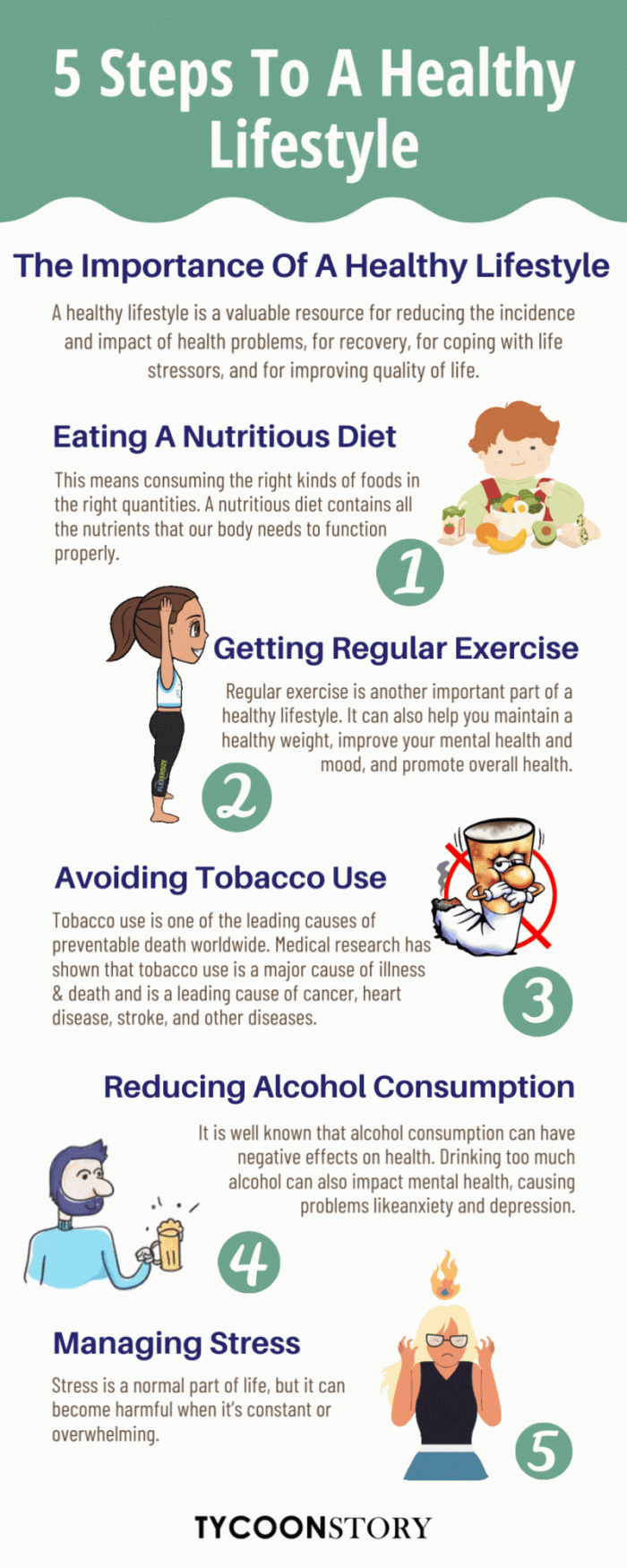
You’ve probably heard that eating a healthy diet, getting regular exercise, and reducing stress are good for you. But the question is, why? And how exactly can these activities improve your life? Well, here’s the thing: They can help you live longer, reduce your risk of heart disease and stroke and make it easier to manage other chronic conditions like diabetes, arthritis and asthma. In this article we’ll explore how adopting five basic healthy habits can help you stay at your healthiest—and what those habits are.
1. Eat a nutritious diet.
A nutritious diet is one that provides your body with the nutrients it needs to function properly. It’s important to eat a nutritious diet because without the right amount of nutrients, you won’t be able to maintain an optimal level of health. A healthy diet should include fruits, vegetables and whole grains (such as brown rice), which provide fiber, vitamins and minerals that help keep your body functioning well. A healthy diet also includes lean meats such as chicken or fish; dairy products like yogurt or low-fat milk; legumes like beans; eggs; olive oil for cooking instead of butter or margarine; nuts such as almonds or walnuts when eaten in moderation because they’re high in fat but have been shown to lower cholesterol levels when substituted for saturated fats–and other items like fresh fruit juices instead of sodas containing large amounts of sugar plus artificial sweeteners (which may have harmful side effects).
2. Get regular exercise.
Regular physical activity is an important part of a healthy lifestyle. It can help keep you from gaining weight and developing chronic diseases such as heart disease, high blood pressure and diabetes. The U.S. Department of Health and Human Services recommends that adults get at least 150 minutes per week of moderate-intensity aerobic activity (such as brisk walking) or 75 minutes per week of vigorous aerobic activity (such as jogging). In addition to aerobic exercise, strength training exercises that work all major muscle groups are recommended at least twice per week. You don’t need to join a gym or buy expensive equipment to get started with an exercise routine–you can start small by taking walks around your neighborhood or park with friends or family members whenever possible! If you’re not used to being physically active on a regular basis, talk with your doctor about how much time it would take for you personally before beginning any kind of workout plan so that they can help monitor progress along the way
3. Avoid tobacco use.
Avoid tobacco use. Tobacco use is the leading cause of preventable death in the United States. It’s linked to many serious health conditions, including heart disease, stroke, lung cancer and emphysema (a disease that causes constant coughing). Tobacco also can cause skin problems such as wrinkles or age spots on your face; bad breath; tooth loss or decay; gum disease; hair loss or baldness–and even impotence in men! Smoking is addictive: it takes time for your body to adjust after quitting smoking–so don’t give up if you have trouble with this step at first!
4. Reduce alcohol consumption.
Alcohol is a toxin and can be addictive. It’s also linked to liver disease, cancer and other health problems. If you’re drinking too much alcohol, or if your loved one does, it’s important to find ways to reduce consumption. You might consider these strategies:
- Make an agreement with yourself (and/or others) about how much alcohol you will consume in a given period of time — say one week or month — then stick with it as best you can.
- Drink water before each drink so that when the waiter comes over with another round of shots or beers at happy hour, you’re not tempted by them because they won’t quench your thirst like water would have done earlier on in the evening!
5. Manage stress.
In the words of Dr. Seuss, “Don’t cry because it’s over, smile because it happened.” Stress is one of the biggest contributors to poor health and can make you feel like your head is going to explode. It’s okay to take time for yourself and get your mind off things with a relaxing activity such as meditation or yoga. You can also manage stress by learning how to relax with deep breathing exercises or massage therapy at home! If all else fails, try sleeping more–it will help immensely!
By following these five steps, you can take control of your health and improve your quality of life. You may have tried to adopt a healthier lifestyle before with little success, but this time is different. The key is to make small changes that can add up over time–so instead of trying to change everything all at once, focus on one area at a time!
